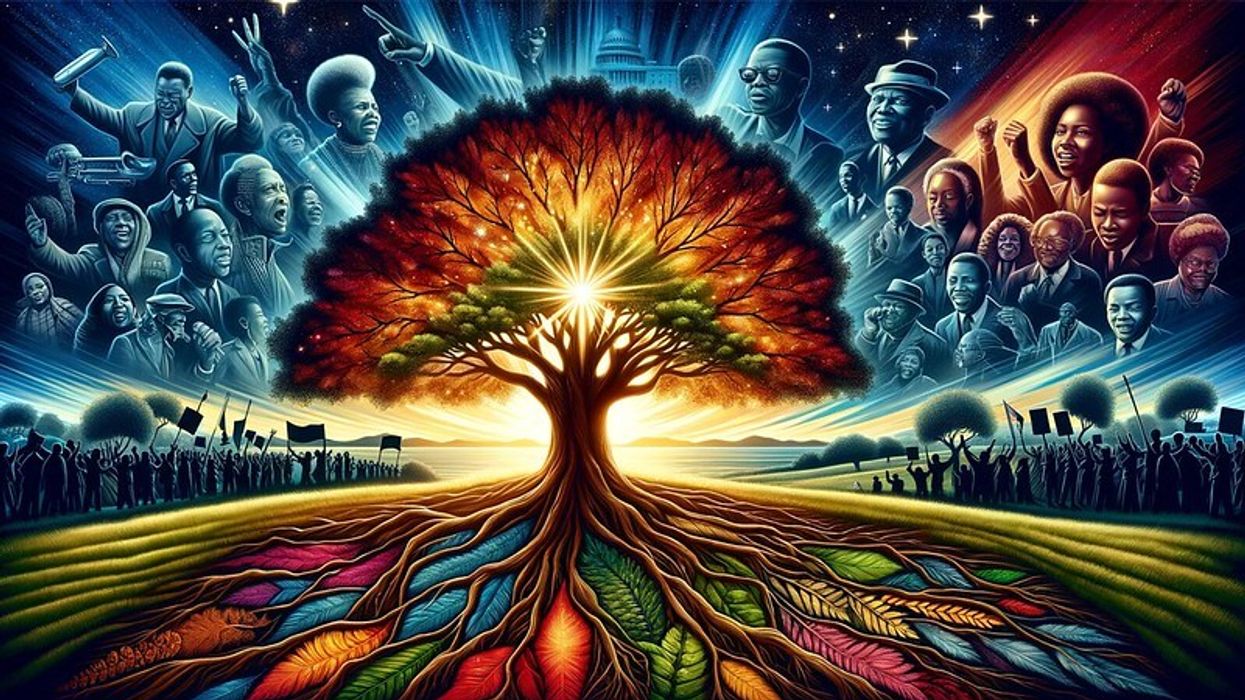December Fun Facts: All About Your Favorite Month Of The Year

With 31 days, December is the twelfth and final month of the Gregorian calendar and falls between November and January.
Everything else seems to fade into the background in December as various seasonal rituals take center stage. We waste what little mental capacity we have on griping about the weather.
The northern hemisphere's winter season has officially begun, so get used to spending your days inside, cuddled by the heater. There is some silver lining: now is the perfect time to read all the novels you've been meaning to get to.
People in the southern hemisphere have a very different December experience. At this point, summer has officially started, and the temperature is only expected to rise.
It's best to remain inside and hydrated in the chill of the evening throughout December in the southern hemisphere rather than braving the heat of the day. Like every other month of the year, December has a lot going for it.
Interesting Facts About December
The ancient Roman calendar, used from about 750 BC until 45 BC, included December as one of its original months. According to this ancient Roman calendar, December was the tenth month. Since the literal translation of December's name is the tenth month, this placement makes much more sense for this month.
January and February were added to the calendar by Julius Caesar when he switched to the Julian calendar in 45 BC. Because of these shifts, December will always be known by the wrong name.
According to the ancient Roman calendar, December only had thirty days. With the adoption of the Julian calendar, December earned a day, making it the seventh and final month of the year to have 31 days.
Different names among the Anglo-Saxon peoples initially knew the month of December. Names like Winter Monath, which means Winter Month, are self-explanatory.
The Anglo-Saxons also referred to December as Yule Monath, likely because it was traditionally the time of year when they burned a Yule log as part of their pagan Yule celebrations. Although many Yule customs have faded over time, others, like the burning of a Yule log, are still observed in some parts of the world today.
A new name for December was created to commemorate the conversion of many Anglo-Saxons to Christianity. With their newfound faith, they began referring to December as Heligh Monath, which means Holy Month.
After the winter solstice on the 20th or 21st of December or the first day of December, if you follow the meteorological seasons, winter officially begins in the northern hemisphere (if you follow the astronomical seasons).
Summer begins in the southern hemisphere either at the start of the month or after the summer solstice, so the seasons are reversed there.
Multiple Native American groups have historically referred to the December full moon as the Full Cold Moon due to its chilly weather. Its name reflects that the subsequent winter months tend to be very cold.
For thousands of years, December 28 has been mourned as the year's darkest day. This superstition has its roots in the Bible, as it was on this date that King Herod ordered the execution of all male infants to eliminate Jesus Christ from the gene pool.
Before, relatively recently, it was thought to be bad luck to begin a new job, venture, or any activity on this day.
There are two very different astrological groups that December babies can belong to. Those born before December 23 fall under the sign of Sagittarius.
Capricorn is the zodiac sign for those celebrating their birthdays on or after December 23. People born under the Sagittarius sign are often praised for their positive attitudes and boundless optimism, as well as their generosity and broad perspective. If you were born under the Capricorn star sign, you would likely be ambitious yet grounded in reality.
The Word 'December' in Other Languages
- Danish - December
- Chinese (Mandarin) - Shí'èryuè
- French - Décembre
- Latin - December
- Spanish - Diciembre
- Italian - Dicembre
Historical Names for December
- Saxon: Giuli
- Roman: December
- Germanic: Heil-mond (Holy month)

Different Things That Happened in December Throughout History
On December 15, 1791, the Bill of Rights became law. The first ten amendments to the United States Constitution make up the Bill of Rights and are widely regarded as the cornerstones of contemporary American society and government.
When the United States of America formally annexed Louisiana on December 30, 1803, the country's size more than doubled. As part of the Louisiana Purchase, the United States paid $15 million to acquire 885,000 sq mi (2292,000 sq km) of land from France.
For one person, December 21 in Britain was relatively painless. In 1846, Dr. Robert Liston at London's University College Hospital used anesthesia for the first time in Britain.
Alfred Nobel, after whom the Nobel Prize was named, passed away on December 10, 1896. In his will, Nobel stipulated that his fortune be used to honor people who have made significant contributions to the betterment of humankind.
Albert Einstein, Marie Curie, and Martin Luther King, Jr. are just a few of the most well-known people to win the Nobel Peace Prize.
Walt Disney was born on December 5, 1901, bringing a little magic into the world. At 27, Disney released Steamboat Willie, his first Mickey Mouse short.
When he was 54 years old, he oversaw the expansion of the Disney empire with the opening of Disneyland in Anaheim, California. The Walt Disney Company has produced so many books, cartoons, movies, and other forms of entertainment that the name Disney has become a household word worldwide.
The dissolution of the USSR (Union of Soviet Socialist Republics, formerly the Soviet Union) on December 8, 1991, brought a grinding halt to the Soviet Union's machinery.
The Battle of the Bulge, which has such a funny name but was quite serious, began on December 16, 1944. Battle of the Bulge was a desperate counterattack by German forces in the Ardennes Forest, southeast of modern-day Belgium. 130,000 Germans and 77,000 Allies had been killed when the German forces were finally defeated.
Holiday Season
The United States observes National Brownie Day on December 8 and National Cupcake Day on December 15, respectively (US). On December 21, we experience the year's longest night, marking the astronomical beginning of winter.
National Egg Nog Month, National Fruit Cake Month, and National Impaired Driving Prevention Month are just a few of the many Christmas-themed months celebrated in the United States.
Throughout December, people celebrate a wide variety of religious holidays. Christians celebrate Christmas, while Jews and others of the Jewish faith observe Hanukkah. December 24 (Christmas Eve) and December 25 (Christmas Day) are designated holidays commemorating the Nativity of our Lord and Savior, Jesus Christ.
Hanukkah begins on the 25th day of Kislev in the Hebrew calendar. It occurs sometime between the end of November and the beginning of December on the Gregorian calendar. It commemorates the liberation of Jerusalem from Greek and Syrian occupation and the rededication of the Second Temple there in the second century AD.
Holidays And Festivals Fixed Dates
National Pearl Harbor Remembrance Day
Each year on December 7, the United States commemorates National Pearl Harbor Remembrance Day, also known as Pearl Harbor Remembrance Day or Pearl Harbor Day, in memory of the 2,403 Americans who lost their lives in the Japanese surprise attack on Pearl Harbor in Hawaii on December 7, 1941, which ultimately led to the United States declaring war on Japan and entering World War II.
Hanukkah
This Jewish festival of lights usually falls in the last week of November. It continues until the first week of December (for example, Hanukkah began on November 28 this year and continued until December 6).
This festival re-asserts the ideals of Judaism and is celebrated by lighting a candle on each day of the festival, taking blessings on the Menorah, and enjoying a traditional family dinner while fiddling with the dreidel.
Christmas
Christmas Eve is celebrated on December 24, and people who believe in celebrating Christmas deck up the Christmas tree at home, cook traditional family dinners, and children place socks or Christmas stockings by their bed before going to sleep, hoping to receive gifts from Santa.
The next day is Christmas Day, celebrated as the birth of Jesus Christ, with people exchanging gifts and devouring cookies and other holiday delicacies.
Also, the Christmas truce takes place, and people welcome each other into their lives with love and happiness.
Boxing Day
First celebrated during the Middle Ages in Britain, this day is celebrated in a few countries only on December 26. On this day, domestic helpers and maids are traditionally granted a day off to celebrate Christmas with their families.
Another tradition observed on this day is that the alms and donations collected for the poor and helpless in churches are distributed.
Kwanzaa
From December 26-January 1, African Americans gather with friends and family to celebrate Kwanzaa, the first harvest festival. The celebration ends with a feast known as Karamu, which takes place on the sixth day of Kwanzaa.
Activist Maulana Karenga based it on customs observed at harvest celebrations in West and Southeast Africa. Beginning in 1966, people all over the world started to celebrate Kwanzaa.
Read a New Book Month
Adults and kids alike are encouraged to read as many books as possible during Read a Book Month to expand their knowledge, creativity, and worldviews. It's not just this month that people should be reading new books, but we hope this will spark a lifelong love of reading and all the wonder and delight it can bring.
Saint Nicholas Day
Saint Nicholas Day, or the Feast of Saint Nicholas, honors Saint Nicholas of Myra and is celebrated on December 6 or 7 in Western Christian countries and December 19 in Eastern Christian countries that follow the old church Calendar. Saint Nicholas Day is a Christian holiday celebrated by giving gifts and visiting churches.
Some widely believe Saint Nicholas started the custom of gift-giving and is who we base Santa Claus on.
Human Rights Day
Human Rights Day is observed annually on December 10 to commemorate the day that the United Nations General Assembly adopted the Universal Declaration of Human Rights in 1948. (UDHR).
Calendar Awareness Month
New Year's Eve: The last day of the year is for reflections, introspections, and a lot of partying and celebrating with your friends. And, of course, don't forget the countdown to midnight as we usher in a new year.
National Fruit Cake Month
Every year on December 27, people all over the country celebrate National Fruitcake Day. Fruitcake is a dessert that combines various types of fruit, nuts, spices, and other sweeteners. Simply put, a fruitcake is a type of cake that contains fruit.
They were frequently used at weddings and at Christmas time. So, a particular day, National Fruitcake Day, was established so people could celebrate by eating fruitcakes. Incredibly, fruitcakes can be stored for years without losing their flavor or nutritional value.
Yule
This Pagan festival is regarded as one of the oldest winter celebrations. It is famous for its curious rituals and traditions that celebrate nature.
Most Wicca and Pagans celebrate this on the day of the winter solstice (December 21), which is the longest night of the year. The Pagan believers celebrate this winter solstice by lighting a candle or igniting a fire that lasts until the sun rises. We believe it honors the winter-born king, symbolized by the Sun's re-birth.
Rohatsu (Bodhi Day)
This Buddhist holiday commemorates the historical vow of Gautam Buddha to sit and meditate under a Bodhi tree until he attains spiritual enlightenment. Buddhists celebrate this holiday by meditating, and this day is akin to Christians celebrating Christmas to honor Jesus Christ.
You Might Also Like
Christmas Crafts: The Fun Stuff To Do Now With The Kids
We Want Your Photos!
More for You
Doctorate specializing in Veterinary Medicine

Oluniyi AkandeDoctorate specializing in Veterinary Medicine
With an accomplished background as a Veterinarian, SEO content writer, and public speaker, Oluniyi brings a wealth of skills and experience to his work. Holding a Doctor of Veterinary Medicine degree from the University of Ibadan, he provides exceptional consulting services to pet owners, animal farms, and agricultural establishments. Oluniyi's impressive writing career spans over five years, during which he has produced over 5000 high-quality short- and long-form pieces of content. His versatility shines through as he tackles a diverse array of topics, including pets, real estate, sports, games, technology, landscaping, healthcare, cosmetics, personal loans, debt management, construction, and agriculture.
Disclaimer
1) Kidadl is independent and to make our service free to you the reader we are supported by advertising. We hope you love our recommendations for products and services! What we suggest is selected independently by the Kidadl team. If you purchase using the Buy Now button we may earn a small commission. This does not influence our choices. Prices are correct and items are available at the time the article was published but we cannot guarantee that on the time of reading. Please note that Kidadl is a participant in the Amazon Services LLC Associates Program, an affiliate advertising program designed to provide a means for sites to earn advertising fees by advertising and linking to Amazon. We also link to other websites, but are not responsible for their content.
2) At Kidadl, we strive to recommend the very best activities and events. We will always aim to give you accurate information at the date of publication - however, information does change, so it’s important you do your own research, double-check and make the decision that is right for your family. We recognise that not all activities and ideas are appropriate for all children and families or in all circumstances. Our recommended activities are based on age but these are a guide. We recommend that these ideas are used as inspiration, that ideas are undertaken with appropriate adult supervision, and that each adult uses their own discretion and knowledge of their children to consider the safety and suitability. Kidadl cannot accept liability for the execution of these ideas, and parental supervision is advised at all times, as safety is paramount. Anyone using the information provided by Kidadl does so at their own risk and we can not accept liability if things go wrong.
3) Because we are an educational resource, we have quotes and facts about a range of historical and modern figures. We do not endorse the actions of or rhetoric of all the people included in these collections, but we think they are important for growing minds to learn about under the guidance of parents or guardians.







